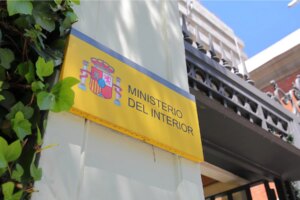Whether you want to learn Spanish or attend a high-quality university, Spain is a very attractive destination for students. However, the ease with which you can move to Spain will depend on your nationality and the type of study program that you want to join.
Get to know the ins and out of student visas in Spain, with sections that cover:
- Studying in Spain
- Who needs a student visa in Spain?
- Types of student visas in Spain
- When you arrive on a Spain student visa
- Study grants and scholarships in Spain
- Transferring foreign qualifications in Spain
- Working while studying in Spain
- Family members joining on a student visa in Spain
- After your study finishes and your Spain student visa expires
- Appeals and complaints about student visas in Spain
- Useful resources
Nodisea
If you need a student visa for Spain, contact Nodisea. This online law firm specializes in Spanish Immigration Law and admin procedures for moving to Spain. They can assist with your visa application, handle the forms for you, and provide continuous English-language support. Contact Nodisea for a free consultation.
Studying in Spain
A 2020 report counted just over a million foreign students enrolled across various study programs in Spain. The report estimates that international students have a direct impact of nearly €2.2 billion on the Spanish economy.

Spain is a top destination for people who want to study Spanish, the fourth most-spoken language in the world and one that is also considered generally easy to learn for native English speakers. Additionally, around 3% of university students in Spain are international students. According to the Spanish Ministry of Universities (Ministerio de Universidades), Italy, Ecuador, and France send the largest number of students to Spain. Many people also arrive from Colombia, China, and the United States.
Spain is an affordable country to live in that also provides a good quality of life. SEPIE estimates the average expenditure of a student or researcher in Spain to be less than €1,000 per month, depending on the city where they live. Enrollment in undergraduate studies at Spanish public universities costs approximately between €700 and €1,800 per course.
Who needs a student visa in Spain?
Unless you’re from the European Union (EU)/European Economic Area (EEA) or Switzerland, you’ll need a Spanish student visa to study, take part in a student exchange, carry out research or training, or work as an unpaid intern or volunteer for more than three months. Different regulations apply depending on the length of your studies, research, or related activities in Spain. The Spanish Ministry of Foreign Affairs (Ministerio de Asuntos Exteriores) issues student visas in Spain.
Before you can apply for a study visa, you must find a program with a recognized institution in Spain. Then, you need confirmation that you’ve been accepted in the form of a certificate or letter of acceptance. Once you have this, you can contact your Spanish embassy or consulate and apply for a student visa.
If you’re unsure of which visa you require, or which documents you need, it’s worth reaching out to an English-speaking legal expert who can guide you through the process. Law firms offering assistance for student visas in Spain include Nodisea.
Types of student visas in Spain
The length of your study program will determine which type of student visa you should apply for.
Schengen visa
If your study program lasts 90 days or less, you may be able to carry out the studies with a Schengen visa. With this type of visa, non-EU/EEA citizens are allowed to stay up to 90 days in Spain (within any 180-day period) for tourism, study, volunteer work, and family visits. Additionally, you can visit other Schengen countries with this visa.
You will not be allowed to become employed in Spain with a Schengen visa.
Requirements
Some non-EU/EEA countries, such as the US and Canada, have a visa-liberalization agreement with the Schengen member states that allows their citizens to visit Schengen countries for 90 days without a visa.
How to apply
If you require a Schengen visa to visit Spain for 90 days or less, you should submit an application using an official application form (PDF). You must apply in person at the Spanish diplomatic mission or consular office in your home country. In addition to the completed and signed application form, you will need:
- A passport with at least two empty pages. The passport should have been issued within the last 10 years and be valid for at least three months beyond the date you intend to leave the Schengen territory.
- Two recent passport photos.
- Proof of travel medical insurance covering emergency medical, hospitalization, and repatriation (including in case of death). The minimum cover should be €30,000. This insurance must be valid for the entire Schengen area and throughout the duration of the stay.
- Proof of the study program and documents relating to the purpose of your stay, including accommodation and round-trip flights.
- Proof of sufficient finances. Spain typically requires visa applicants to show they have access to €100 per day during their stay, with a minimum of €900 per person regardless of the intended duration of the visit.
- If the Visa Information System is operational in your country, your fingerprints will typically be collected when you submit your application.

Photo: Rubén García/Unsplash
You can find the complete list of required documents on the website of the consulate in your country. While processing your application, the consulate could ask you to submit additional information or documents. They may also contact you for an interview.
The Spanish authorities typically approve or deny the application within 15 calendar days after you submit the paperwork. However, they may extend the process up to 45 days in some circumstances.
Visa costs
You will also need to pay the visa fee when you apply. The basic visa fee is:
- €80 for applicants from 12 years of age
- €40 for minors from ages six to 11
- Free for applicants under six years old
Check with the Spanish Consular office in your country to find out if you are eligible for a reduced fee. The visa costs could be higher if you use a third party to help you complete the application process. You will not get a refund if the Spanish authorities reject your visa application.
Visa length
You may stay in Spain and other Schengen countries for up to 90 days within a 180-day period.
Long-stay student visa in Spain
If you’re studying in Spain for more than 90 days, you’ll need a student visa (website in Spanish – information for US students). If you have this visa, you will be eligible to enroll in undergraduate or postgraduate degree programs and reside in Spain for the duration of your study program. If you stay for less than 180 days, your visa will be valid for the length of your program. If the stay is longer, you will need to obtain a student’s residence permit or Foreigner Identity Card (Tarjeta de identidad de extranjero – TIE) within 30 days of your arrival in Spain.
You may work up to 30 hours a week alongside your studies when you have a student visa.
Requirements
The application process for this type of visa requires more paperwork than a Schengen visa. Therefore, you should begin the student visa application process as soon as the approved university or study course in Spain accepts you into the program.
You must request the visa in person at a Spanish diplomatic mission or consular office in your country or at an immigration office in Spain. You can select a person to represent you if you’re a minor or unable to travel to the office. When applying for a student visa from outside Spain, you will typically need to provide the following:
- Two completed application forms (original and a copy)
- Your valid passport
- Your valid identification card
- Two recent passport photographs
- Letter of admission to the university or study program
- Proof of health insurance by an insurer authorized for Spain
- Proof of sufficient funds:
- A bank account statement showing access to funds surpassing Spain’s Public Multiple Effects Income Indicator (IPREM). This amounts to €100 per day (PDF in Spanish) in 2022 and must be a minimum of €900.
- Proof of financial aid/scholarship
- Notarized letter from parents/legal guardian (assuming financial responsibility for minors)
- Letter from university/school (assuming financial responsibility)
- Proof of visa fee payment
- Medical certificate of good health signed by a physician (example available online)
- Certificate of criminal record (less than three months old)
- Proof of residence in your home country

Visa costs
The cost of the long-stay visa will depend on your country of origin and whether you are using a third party to help with the process. You should expect a minimum fee of €60.
Visa length
The duration of your Spanish student visa will depend on the length of your course or program. For example, if your study program is six months, your student visa will be valid for six months. You can find the expiration date on your visa.
If you want to extend the visa, you will usually need to apply 60 days before it expires. After you apply for an extension of your student visa, the immigration office will give you a document that makes you eligible to stay in Spain until you obtain the visa extension.
When you arrive on a Spain student visa
Students who plan to live in Spain for longer than three months with a short or long-stay visa must fulfill certain requirements after arriving in the country.
Most importantly, within 30 days of arrival in Spain, you must apply for a residence card/permit (Tarjeta de Residencia or TIE) at the Foreigner’s Office (Oficina de extranjeros) or police station in the province where you’re living. The police have a tool on their website (in Spanish) to locate your nearest office. You’ll need a valid passport/travel ID, color passport photos, and a completed application form. You should also bring proof of your address, bank statements, medical insurance, and evidence of university or study program enrollment.

Students with a study visa for longer than six months must obtain a foreign student identity card with a Foreigner’s Identity Number (Número de Identificación de Extranjero or NIE). This number is necessary to make any financial transaction in Spain, including opening a bank account, being paid for employment, paying Spanish taxes, and registering with social services. You also need this number to get a Spanish driver’s license.
EU citizens will be issued an NIE when they apply for their registration certificate. Otherwise, you can submit the application to the immigration office after receiving a residence permit.
Study grants and scholarships in Spain
The Spanish government has some grants and scholarships available to students who can legally live in Spain. For example, MAEC-AECID grants (website in Spanish) for foreign students will typically cover living expenses such as medical insurance, accommodation, and meals. These grants are usually aimed at postgraduate students under 35 years old. You’ll be expected to have a good knowledge of the Spanish language.
Study grants awarded by the Spanish Ministry of Education, Culture, and Sport are usually reserved for foreigners already residing legally in Spain. However, it is worth checking the requirements for each scholarship option (website in Spanish). SEPIE also provides a list of scholarship opportunities for international students.
Transferring foreign qualifications in Spain
Depending on the type of study program, you may need to have your documents officially translated. You may also need to have your academic qualifications formally recognized by the Spanish authorities.
Spain has two types of degree recognition for students. These are homologación (recognition of equivalence) and reconocimiento parcial (partial recognition).
If you have attended another university in the EU, the European Credit Transfer and Accumulation System (ECTS) can help you transfer your credits to a Spanish university. Students from either the EU or other countries having educational agreements with Spain may also be able to apply for a UNEDasiss accreditation if the university accepts this method for admissions. Otherwise, the university or course that you enroll in should be able to guide you through the process.
Working while studying in Spain
Your ability to work while in Spain on a student visa will depend on which type you have. As mentioned, you cannot work while in Spain on a Schengen visa. However, you are eligible to work part-time with a student visa.
Keep in mind that you cannot work more than 30 hours per week and the job shouldn’t interfere with your studies. Furthermore, your employment contract cannot exceed the duration of the study visa. You do not need a work permit to undertake an internship that is part of the study program. However, traineeships that are not related to your study require an Internship visa.
Family members joining on a student visa in Spain
Usually, relatives have to wait a year before coming to Spain for family reunification (reagrupación familiar). However, specific relatives can join you immediately as long as certain conditions are fulfilled, such as:
- You are a student visa holder who can prove sufficient funds to support dependents
- You can provide evidence of your relationship
- You must be able to legally reside in Spain for more than six months

Family members eligible for the Spain family visa are:
- spouses and civil partners
- dependent children
- parents who cannot live independently
Family members are not allowed to work or get a work permit while they are in Spain with you. They also have to apply for their Foreigner’s Identity Card (TIE) a month after arriving in Spain.
After your study finishes and your Spain student visa expires
Students who have obtained an undergraduate degree, Master’s degree, or PhD in Spain can apply for a job search visa (estancia por estudios superiores que cesa, para búsqueda de empleo) to extend their stay in Spain after the study program has ended. This one-year residency permit allows new graduates to search for a job in Spain. You will not be able to extend or renew this permit, and you may not start working when you have it – once you find a job, you will need to apply for a work permit.
You can apply for this permit 60 days before your student Foreigners Identity Number (NIE) expires, or until 90 days after the expiration. The process can take up to three months, so it is best to apply as soon as possible. You can include dependents in the visa who relied on you during your studies. If you secure an employment contract, your employer can then apply for a Spain work permit on your behalf.
Appeals and complaints about student visas in Spain
If the Spanish authorities deny your student visa application, you will be notified with a standardized form indicating the reason. In this case, you have two months to file an appeal with the Superior Court of Justice of Madrid.
Alternatively, you can file an appeal for reversal with the same Diplomatic Mission or Consular Office within one month after the authorities informed you that they denied your visa.
Useful resources
- SEPIE – information in English on higher education in Spain for international students
- Spanish Ministry of Foreign Affairs – official website of the Spanish authorities overseeing Spain student visas
- European Commission: Schengen Area














